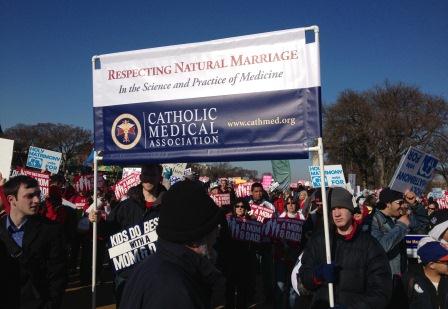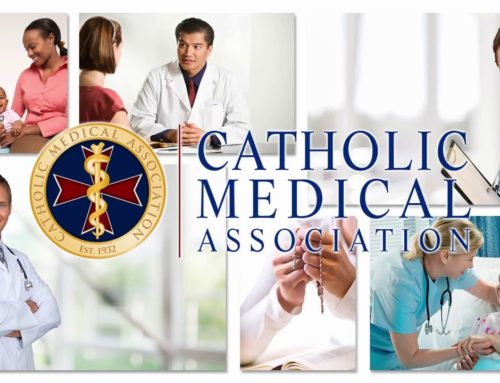“What’s your major?” That’s the most common question undergraduates are asked when being met the first time. Often, the answer is a mumbled, “Well, I haven’t really decided yet…” Also common is a hesitant, “Well, I was a politics major, but that was kinda boring, and I like literature, except for all the reading, so I think I might study philosophy instead—‘cuz, how hard can that be, right?”
But, if a student is asked that question, and his nostrils flair, fire flashes in his eyes, and his jaw tightens in grim determination, you can be sure that his answer will almost certainly be, “I’m a pre-med major.” Young adults who want to be doctors know that they have a long and very difficult path to walk. It is not for the faint of heart, the weak-willed or the uncertain. To get ready for medical school, you have to want it, you have to know that you want it, you have to be sure that you will be miserable without it, and you have to be prepared to immerse your whole identity and future in becoming (and remaining) a medical student until you are transformed into and licensed as a doctor. Stepping onto the path of becoming a medical doctor requires surrendering all wishful thinking.
What can be harder than becoming a doctor? How about becoming a medical doctor who is also a faithful Catholic? That was always hard, and it is becoming harder—especially since the advent of ObamaCare. The choice to become a faithful Catholic medical doctor entails rugged determination, high hopes and deep faith. Last week, I met 35 young people who had made that choice—they were all medical students who attended the Catholic Medical Student Boot Camp sponsored by the Catholic Medical Association, where I gave the keynote address.
At that Boot Camp, I experienced a grace that does not come easily for me, namely, hope. In our present time and place, when so many social, cultural, legal and spiritual forces appear to be arrayed faithful Catholics, it was uplifting to meet young, faithful Catholics who are intelligent, committed, and passionate. These young men and women are skilled and disciplined learners who are ready to pay the price to become faithful, Catholic doctors. I was edified by their courage and zeal, and I was saddened by their poverty.
What do I mean by “poverty”? Well, not what most people mean by that word. What I have in mind is their relative isolation, their lack of resources, and, finally, their (prescient, I believe) expectation of struggle, abuse and persecution.
Most of the students attending the Boot Camp were enrolled in non-Catholic medical schools. Most of the students enrolled in self-identified Catholic schools could make a persuasive case that their schools were Catholic-in-name-only. In either case, nearly all experienced a terrible loneliness, a sense that they were in a permanent minority, if not always unique among their contemporaries and mentors.
Lack of resources? All asserted that their schools were well equipped for giving them all the technical training they wished. But these same students admitted that almost nothing in their pre-med or medical training equipped them for the habits of mind and body of knowledge they must have to be faithful, articulate, effective and persuasive Catholic doctors. They told me that when the faculty at the Boot Camp made their presentations (and the ones I saw there were excellent), most students were hearing about, say, natural lawor final causality for the first time. In other words, much of the conceptual framework and core concepts a Catholic intellectual needs to function in the moral realm had not already been made available to them. Of the 35 students present, a show of hands indicated that only two students had taken an undergraduate philosophy course beyond the introductory level, and only three had taken even a basic introductory theology course. They need foundational material beyond faith and good will.
At the Boot Camp, some presenters spoke of apologetics, and the students were eager to absorb all the material. When I spoke with them, they indicated that they lacked confidence in their ability to present to colleagues, mentors and future employers the truths and values of the faith in a way that would win souls and not just arguments. They need to be taught the art of rhetoric in a manner that can be enlisted in service of the apologetic intentions. (Stratford Caldecott’s sublime and practical work, “Beauty in the Word” would be a good place for them to start.)
Medical education, rightly, provides constant reminders of the demanding vocation of being a healthcare provider. These students knew that the difficult path would be all-the-more difficult because of their commitment to be faithful Catholic doctors. The true “Gospel of Life” (including, but not limited to, the issues of abortion, contraception, homosexuality, euthanasia, assisted fertility, and the like) would make them positively unwelcome, both professionally and personally, in many clinical settings. It is not impossible, in the present and coming political/legal climate, that faithful Catholic doctors might be precluded from practicing medicine, whether de facto or de jure.
What do these students (and those like them) need? Well, they need each other. The students that I met were obviously delighted to find truly Catholic counterparts, reminding them that they are not alone. They need faithful mentors who are both capable and accomplished. I was honored to meet several such mentors who were teaching at the Boot Camp. What a cadre of medical and moral heroes can be found among the ranks of the Catholic Medical Association!
These Catholic medical students also need more of what was given to them over five days at the Boot Camp—education in the Catholic approach to medicine that is at once both up-to-date and timeless, both broad and deep. These students also need both mentoring and resources to be brought quickly up-to-speed in the facts and principles essential for Catholic intellectuals at work in the arena of moral conflict. They need practical and traditional methods of spiritual formation—the classics of Catholic spiritual practice that have been battle-tested by saints for centuries (e.g., the Spiritual Exercises of Saint Ignatius Loyola, of course, and I’d be glad to recommend “Spiritual Combat Revisited”, a contemporary restatement of Scupoli’s classic, by Jonathan Robinson.)
I also believe that these students need sound liturgical formation, which, given their age, they almost certainly have not yet received. Into their chaotic and demanding schedules, they need to insert a rhythm of prayer, beginning with a commitment to the Liturgy of the Hours. Above all, they need to be taught an understanding of Eucharistic spirituality that centralizes the Incarnational and sacrificial aspects of the Mass. (Towards that end, I would recommend the words of Schneider, Moorman, and Kwasniewski.)
What do these good young people, these would-be Catholic doctors need from all of us? Prayer—of course. We must commit to a program of militant intercession on their behalf, that they will be drawn to and persist in the practice of medicine as faithful Catholics. I ask you to commit to a weekly effort at intercession, whether it be prayer, fasting or sacrifice. And of course, they need our financial support. A donation can help bring another medical student to next year’s Boot Camp, as well provide for their benefiting from all that the Catholic Medical Association has to offer.
Remember—if we want to have faithful Catholic doctors in the future, we have to start preparing them and supporting them right now.
When I write next, I will speak of the apparent clash between sorrow and joy in the Christian life. Until then, let’s keep each other in prayer.
Father Robert McTeigue, S.J. is a member of the Maryland Province of the Society of Jesus. A professor of philosophy and theology, he has long experience in spiritual direction, retreat ministry, and religious formation. He teaches philosophy at Ave Maria University in Ave Maria, FL, and is known for his classes in both Rhetoric and in Medical Ethics.
(Published by our partner http://www.aleteia.org/en )









